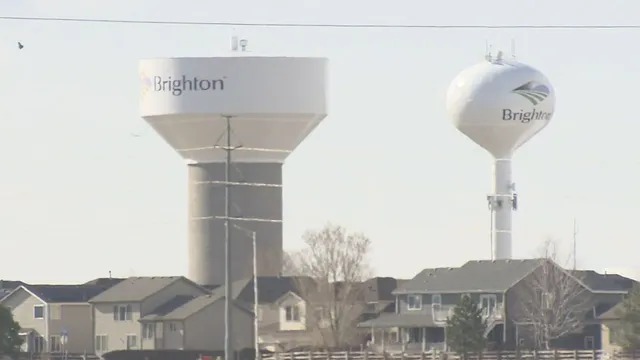
Community rejoices as Amprius delays controversial Colorado battery plant
2025-07-04 19:47- Amprius Technologies was planning to construct a lithium-ion battery manufacturing facility in Brighton, Colorado.
- Local residents, led by Jessie Williams, voiced strong opposition due to environmental and safety concerns.
- The plant's opening has been delayed, providing a temporary relief to the community and inspiring local activism.
Express your sentiment!
Insights
In Colorado, plans for a lithium-ion battery manufacturing facility proposed by Amprius Technologies at 18875 E. Bromley Lane in Brighton have been put on hold. Initially announced back in 2023, the project aimed to establish a large-scale 775,000-square-foot factory intended to enhance the state's clean energy economy. However, significant opposition from local residents arose, particularly from individuals like Jessie Williams, who expressed deep concerns over potential environmental impacts due to the proximity of the facility to their homes and schools. Williams has notably campaigned against the development, citing fears over chemicals and the safety of the community's water supply.The ongoing battle against the factory in Brighton has galvanized community members, who organized to voice their concerns extensively. Activists like Williams have committed to petitions and raised awareness by going door to door, articulating their worries about living just 650 feet away from what would have been a substantial industrial operation. Meanwhile, while the manufacturing plans remain dormant, local developments are continuing in the area, as more homes are being planned east of the intended plant site.In light of these developments and the halt to production, many community members feel a sense of relief, with Jessie Williams stating that the uncertainty of the plant's opening had negatively impacted their quality of life. Additionally, the situation has motivated her to pursue a position on the Brighton City Council, as she aims to ensure that new developments align better with community interests. Williams wishes to advocate for future projects that are more compatible with the existing neighborhood and to maintain a vigilant watch over any potential industrial activities in the area. Although state leaders had initially heralded the proposed factory as a boost to the clean energy economy, the local opposition highlights the complexities involved in such initiatives and raises the question of balancing economic growth with community safety and environmental concerns.
Contexts
The proliferation of lithium-ion battery plants has garnered significant attention due to their impact on local communities, particularly given the growing demand for electric vehicles and renewable energy storage solutions. These plants have been positioned as crucial components of the transition towards more sustainable energy systems, yet they have also sparked discussions concerning their effects on the economic, environmental, and social fabrics of the communities in which they are established. Understanding these dynamics is essential for policymakers, stakeholders, and community members alike as they navigate the complexities associated with this evolving industry. Economically, lithium-ion battery plants can provide a substantial boost to local economies through job creation and capital investment. The establishment of such facilities often leads to the creation of direct jobs in manufacturing and indirect jobs in related sectors such as transportation, logistics, and service industries. Additionally, the influx of investment can spur the development of supporting infrastructure, including roads and utilities, which can benefit the wider community. However, it is essential to critically assess the quality and sustainability of these jobs, as many positions may be temporary or low-paying, leaving workers vulnerable to economic downturns. Environmental considerations are paramount when evaluating the impact of lithium-ion battery plants. The manufacturing process involves various chemicals and materials that can pose risks to local ecosystems and public health. Communities often raise concerns about air and water pollution, hazardous waste generation, and resource depletion. On the flip side, the transition towards electric vehicles powered by lithium-ion batteries presents a considerable opportunity to reduce greenhouse gas emissions and combat climate change. Therefore, it is crucial to implement robust regulatory frameworks and rigorous environmental assessments to mitigate potential adverse effects while maximizing the benefits of cleaner energy technologies. Socially, the establishment of lithium-ion battery plants can lead to both positive and negative outcomes for local communities. On one hand, these plants can foster community pride and engagement by positioning the area as a leader in green technology and innovation. Conversely, there can be resistance from residents concerned about the environmental impacts and the potential for increased traffic and noise associated with industrial operations. Effective stakeholder engagement and transparent communication strategies are imperative to address community concerns and to ensure that the benefits of battery plants are equitably shared among residents. In conclusion, lithium-ion battery plants represent a complex interplay of economic opportunities, environmental challenges, and social dynamics, necessitating a balanced approach aimed at enhancing community well-being while advancing technological progress.